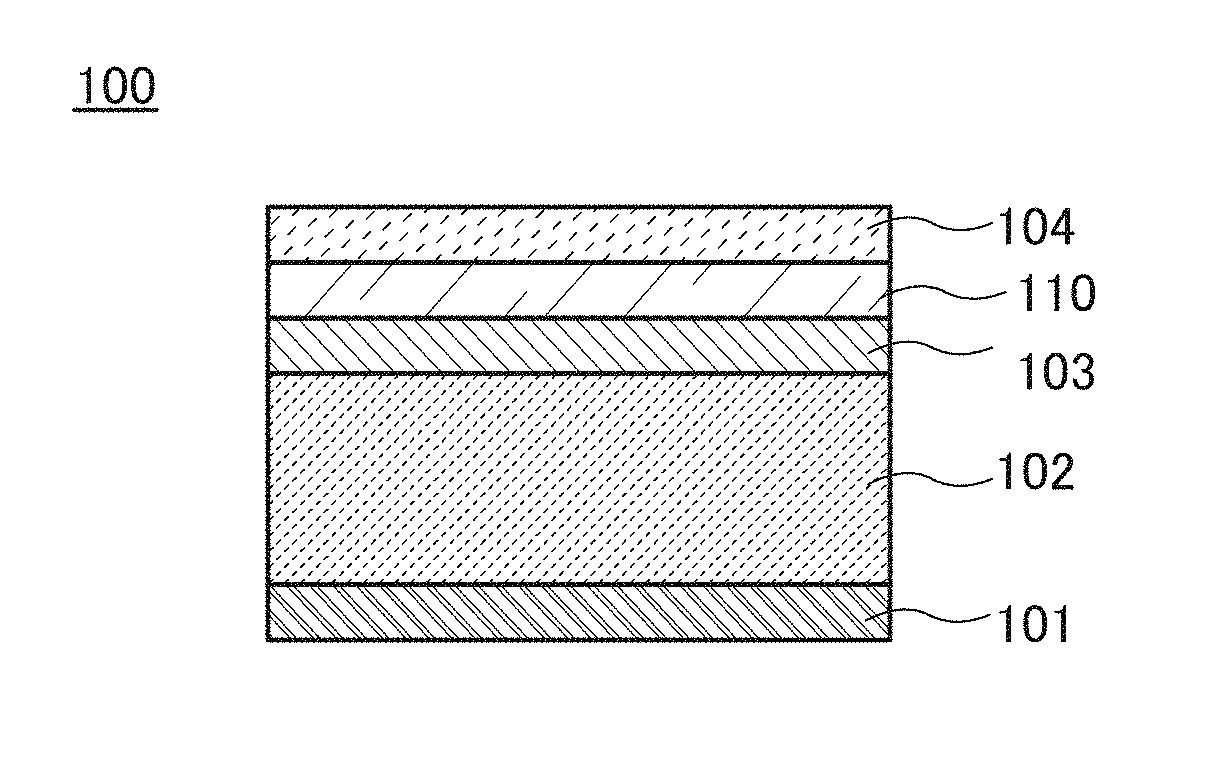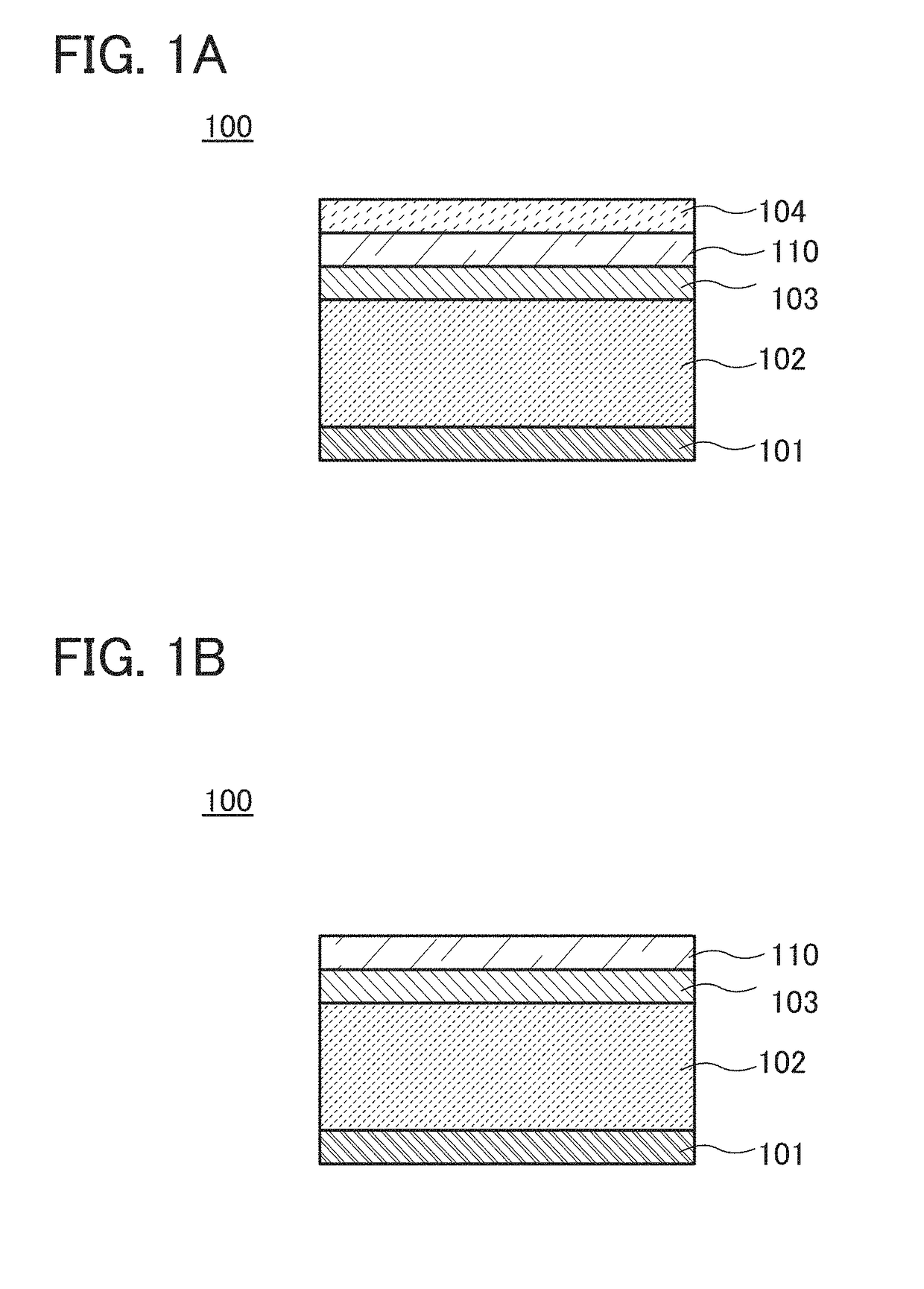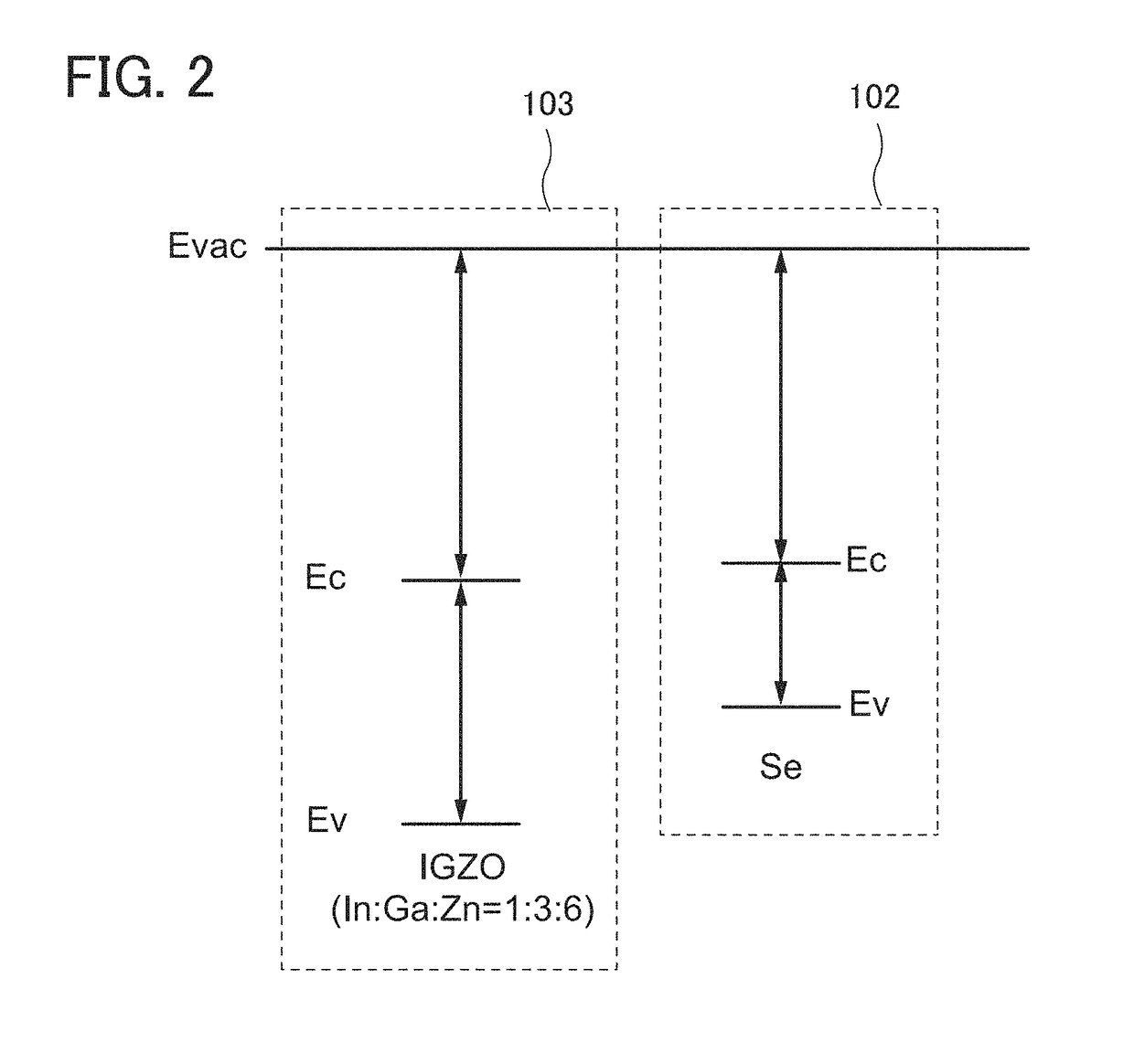Photoelectric conversion element and imaging device
a conversion element and imaging device technology, applied in the direction of electrical equipment, semiconductor devices, radio control devices, etc., can solve the problems of difficult imaging, low illumination condition, and cost of achieving 4k/8k broadcasting, and achieve low illumination condition, easy imaging, and excellent imaging performance.
- Summary
- Abstract
- Description
- Claims
- Application Information
AI Technical Summary
Benefits of technology
Problems solved by technology
Method used
Image
Examples
embodiment 1
(Embodiment 1)
[0056]In this embodiment, a photoelectric conversion element 100 of one embodiment of the present invention will be described with reference to drawings.
[0057]FIG. 1A schematically illustrates a cross-sectional structure of the photoelectric conversion element 100 of one embodiment of the present invention. The photoelectric conversion element 100 includes a first electrode 101, a photoelectric conversion layer 102 over the first electrode 101, a hole injection blocking layer 103 over the photoelectric conversion layer 102, an oxide layer 110 over the hole injection blocking layer 103, and a second electrode 104 over the oxide layer 110.
[0058]The photoelectric conversion element 100 may be formed over a substrate or over a driver transistor which is formed in a substrate or formed over a substrate.
[0059]FIG. 1B schematically illustrates a cross-sectional structure of the photoelectric conversion element 100 of one embodiment of the present invention. The photoelectric ...
embodiment 2
(Embodiment 2)
[0110]Next, specific structure examples of an imaging device of one embodiment of the present invention will be described with reference to drawings. FIG. 3A is an example of a cross-sectional view of an imaging device of one embodiment of the present invention and illustrates an example of specific connection between the photoelectric conversion element 100 in FIG. 1A and driver transistors. The imaging device includes a layer 1100 including a transistor 151 and a transistor 152 and a layer 1200 including the photoelectric conversion element 100.
[0111]Although the wirings, the electrodes, and the conductors are illustrated as independent components in cross-sectional views in this embodiment, some of them are provided as one component in some cases when they are electrically connected to each other. In addition, a structure in which a gate electrode, a source electrode, or a drain electrode of the transistor is connected to the wirings through the conductor is only an...
embodiment 3
(Embodiment 3)
[0175]In an imaging device of one embodiment of the present invention, an oxide as typified by an In—Ga—Zn oxide is used for the hole injection blocking layer included in the photoelectric conversion element. In this embodiment, the oxide will be described. Note that the oxide can be used as a semiconductor also for a transistor which is connected to the photoelectric conversion element; thus, its effective properties when the oxide is used for a transistor will also be described.
[0176]A structure of the oxide is described below.
[0177]An oxide is classified into a single crystal oxide and the other, a non-single-crystal oxide. Examples of the non-single-crystal oxide include an oxide having a c-axis-aligned crystalline (CAAC) structure, a polycrystalline oxide, an oxide having a nanocrystalline (nc) structure, an amorphous-like (a-like) oxide, and an amorphous oxide.
[0178]From another perspective, an oxide is classified into an amorphous oxide and the other, a crystall...
PUM
 Login to View More
Login to View More Abstract
Description
Claims
Application Information
 Login to View More
Login to View More - R&D
- Intellectual Property
- Life Sciences
- Materials
- Tech Scout
- Unparalleled Data Quality
- Higher Quality Content
- 60% Fewer Hallucinations
Browse by: Latest US Patents, China's latest patents, Technical Efficacy Thesaurus, Application Domain, Technology Topic, Popular Technical Reports.
© 2025 PatSnap. All rights reserved.Legal|Privacy policy|Modern Slavery Act Transparency Statement|Sitemap|About US| Contact US: help@patsnap.com



